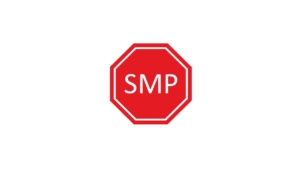ACADEMIC ARTICLES
THE LOGICS OF CHANGE
Published in the Academy of Management Review, 1994 (download pdf)
The literature on organizational change and strategic management emphasize the need for organizations to adapt to changing threats and opportunities in their environments. The ways we manage and produce organizational change are a function of the point of view we take regarding change. This article outlines three different points of view, also called our underlying assumptions or logics, of change: formal logic, dialectic logic, and trialectic logic. Formal (Aristotelian) logic tells us that we establish boundaries to separate relatively fixed and permanent characteristics of individual and organizational “identities” such as personality, culture, or structure. Because these identities are fixed, change is, ultimately, not possible. Things are, in their essence, as they are, even though they may appear to change over time. Dialectical logic views change as the result of oppositional struggles, i.e., change is a product of conflict, and conflict is necessary to produce change. In this view, everything changes all the time due to the tensions of inherent contradictions, until one “side” ultimately wins out and a new, better synthesis arises from the struggle. Trialectics is a logic of attraction: we live in a world of change, movement, and process, and even relatively stable patterns of movement – people, organizations, and ideas – are the products of constant motion. No tensions, conflict, or contradictions are required: everything is already always changing. Further, opposites are only a function of the frame or context we apply, which means there are no inherent contradictions. Change requires only specifying a desired result and identifying the active and attractive forces that will produce it. This is a creative process, since each of these elements can be described in many different ways to attract people to take actions that will result in new situations and outcomes. Each of these three points of view has its own language for the change process. Formal logic gives us the world of things and certainty. Dialectical logic gives us struggle, confrontation, and the rich vocabulary of power. Trialectical logic gives us a world of relationship and possibility. A table in the final section of the paper shows the different languages of change applied to an actual restructuring of the US Post Office that corresponds to the three logics of change.
CONVERSATIONS AND THE EPIDEMIOLOGY OF CHANGE
Published in Research on Organization Change and Development, 1999 (download pdf)
This chapter draws on epidemiology to look at what is involved in bringing about a change in an organization IF you consider a change as an infection.
ORGANIZATIONAL CHANGE AS AN INFECTIVE PROCESS
Presented at the 1999 Annual Academy of Management Meeting (download pdf)
Drawing on epidemiology as a framework, this paper looks at what is involved in “infecting” an organization with a change.
